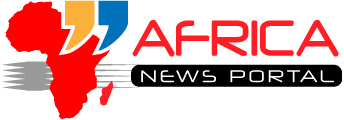 Nigeria’s film industry is booming, but lack of funding and rampant piracy holds it back. A stronger effort to improve quality, enforce intellectual property laws and clampdown on piracy should help to generate substantial revenues that really whet the appetite of investors.
Nigeria’s film industry is booming, but lack of funding and rampant piracy holds it back. A stronger effort to improve quality, enforce intellectual property laws and clampdown on piracy should help to generate substantial revenues that really whet the appetite of investors.
In April 2014, Nigeria rebased its GDP and became Africa’s largest economy. For the first time, industries such as telecoms, the internet, and airlines were included when calculating GDP, swelling the total value of the economy in 2013 to $510 billion, well above South Africa’s total output of $370 billion.
Besides ICT and airlines, another significant driver of the modern Nigerian economy, the local film industry, has also been taken into account. Valued at more than $5 billion, “Nollywood”, as it is known, now contributes around 1.4% to Nigeria’s GDP and employs more than a million people, making it the country’s largest employer after agriculture. In terms of movies produced, Nigeria’s film industry is the second largest in the world after Bollywood—even trumping Hollywood—with more than 2,000 movies released in 2013.
But perhaps Nollywood’s strength has been quantity rather than quality. Lack of funding means the majority of movies are made in as little as 10 days on shoestring budgets of between $25,000 to $70,000 (an average Hollywood production costs around $250 million). However with the growing popularity of Nigerian movies across Africa and throughout the world—particularly with the diaspora in the U.S. and Britain—investors have spotted an opportunity in producing big-budget blockbusters. Last year saw the release of Nollywood’s biggest ever production, ‘Half of the Yellow Sun’, which stars British-Nigerian actor Chiwetel Ejiofor, best known for his leading role in ‘12 Years a Slave’. An adaptation of the Chimamanda Ngozi Adichie novel of the same name, the movie cost $10 million to make, with 70% of the funding coming from Nigerian investors and the rest from the U.K. and the British Film Institute.
As Nollywood seeks to go global with higher quality productions, more of Nigeria’s capable moviemakers will be looking to investors to fund the next big blockbuster. Although, like for the producers of ‘Half of the Yellow Sun’, the task won’t be easy. One of the big concerns for investors is the substantial revenue lost to illegal distributers. The majority of movies go straight to DVD, only to be pirated and sold by peddlers on the streets for a couple of dollars.
However the proliferation of the internet across Africa, coupled with the growing popularity of Nollywood movies across the globe, has supported the rise of legal online streaming sites such as iROKOtv. Established in 2010 by British-Nigerian internet entrepreneur Jason Njokuand and his partner Bastian Gotter, iROKOtv has grown from a humble hi-tech startup to become the “Netflix of Africa”, with a library of more than 5,000 African movies and TV shows. Its backers include US-based hedge fund Tiger Global, which invested $8 million in 2012. Recently it was announced that Vodafone Ghana would partner with iROKOtv to bring to introduce the first ever video on demand (VoD) service in the Ghanaian market.
The success of iROKOtv has naturally led to the launch of similar streaming services specializing in African content. iBAKAtv is expanding fast, as is Pana TV, which secured the rights to stream ‘Half of the Yellow Sun’ last year. As mobile broadband technology and digital television becomes cheaper and more accessible to a growing middle class across the African continent, these and other VoD service providers can expect their subscriber bases, and indeed profits, to continue to grow.
While online VoD services offer a steady revenue stream for film producers, sizeable returns that really whet the appetite of investors will not become a reality until there is crackdown on illegal distribution of DVDs. Lack of regulation and weak intellectual property (IP) laws help pirates to thrive and to take the lion’s share of profits.
“Nigeria’s copyright law expressly provides for written contracts to prove ownership of films, but the ubiquity of informal agreements and weak enforcement mechanisms have made it difficult to deter illegal film distribution. Reportedly, within hours of a film’s release, pirates are selling boot leg copies for a fraction of retail price,” states a recent report by the United States International Trade Commission (USITC).
But Nollywood is fighting back. With the help of the government, action is being taken to combat piracy and to improve the legitimacy of the film industry. The Lagos state government launched the Nollywood Upgrade Project in 2012, which aims to improve the production quality and formal distribution of movies. In 2011 President Goodluck Jonathan pledged a $200 million government loan for the film industry, which has helped distributors to establish new legitimate distribution channels.
In order to foster creativity and entrepreneurship, as well as to tackle youth unemployment, the government has also invested millions in training courses for film production, and organizes workshops and seminars to improve IP awareness within the film industry.
“Through a range of training courses, seminars, and practical workshops, filmmakers are becoming more IP-aware,” writes Sandra Oyewole in a report for the World Intellectual Property Organization.
“A new IP-savvy generation of filmmakers is emerging; one that ensures that IP rights are recognized and protected and that appropriate contracts are in place. Access to such formal training is fostering a more business-oriented approach among filmmakers, and enhancing the quality of scripts, acting and other technical aspects of Nigerian film, making it an increasingly attractive investment proposition.”















